Category: books
You are viewing all posts from this category, beginning with the most recent.
Slow Reading
After reading more than 80 books in 2019, there’s a part of me that is getting a little squirmy knowing that it’s two weeks into January and I haven’t completed a single book yet this year. But there’s a good reason for that. (It’s not that I haven’t been reading…)
I’ve had Charles Taylor’s A Secular Age on my radar (and my Kindle) for a couple years now. Several of the popular-level books I’ve read in recent years have drawn on him heavily, leading me to believe I should really dig in and give him a shot myself. I’ve tried starting the book twice before, both times giving up about half-way through the introduction.

A Secular Age is not for the faint of heart. It’s nearly 900 pages long, with a vocabulary that makes me thankful for the Kindle’s built-in dictionary and Wikipedia lookups. I feel like I’ve worked hard reading it and I just passed the 50% mark. But it’s been worth the time and effort.
Taylor observes that between the years 1500 and 2000 we as a Western society have moved from a culture in which it was almost impossible to not believe in God and see a strong overlap between the physical and spiritual realms, to a culture in which it’s not abnormal to have an entirely secular perspective on the universe and dismiss the spiritual altogether. A Secular Age is his attempt at telling the story of how we got there, and it has provided some fascinating insights.
So, maybe I’ll only finish one book in January. But I’m OK with that. The goal is learning, not just consumption.
2019 Reading in Review
The beginning of a new year means a quick look back first at last year’s reading in review. (Some people put these lists out at the end of the year… I’m still adding books to the list until the very end, so New Year’s Day it is!) I’ve posted a few compendiums (compendia?) through the year and highlighted some favorites as I went, so I’ll just do a brief wrap-up here.
My 2019 reading is all logged over on Goodreads (as is everything I’ve read since 2007!). Somehow I got through 82 books in 2019 - the most I’ve ever read in a year. 33 of those were fiction… which left a lot of non-fiction, mostly theology and history. I read 23 by female authors this year, which is more than previous years, though not quite as many as I had hoped to get to.
Favorite fiction of the year:
- Virgil Wander by Leif Enger
- Pachinko by Min Jin Lee
- Wanderers by Chuck Wendig
- Laurus by Eugene Vodolazkin
Favorite non-fiction of the year:
- A Song for Nagasaki by Paul Glynn
- In The Shelter: Finding a Home in the World by Padraig O Tuama
- Dignity: Seeking Respect in Back Row America by Chris Arnade
- What Is A Girl Worth? by Rachael Denhollander
- God in the Rainforest: A Tale of Martyrdom and Redemption in Amazonian Ecuador by Kathryn T. Long
- Paul and Gender: Reclaiming the Apostle’s Vision for Men and Women in Christ by Cynthia Long Westfall
- Hannah’s Child: A Theologian’s Memoir by Stanley Hauerwas
For 2020 I’d really like to find a little more fiction that engages me. I’ve picked up several novels this year only to have them completely fail to capture my interest enough to go on with them. I have a plenty big pile of unread books next to my bed and on my Kindle to work through.
Alternately, I could probably spend the whole year just reading Charles Taylor’s A Secular Age and David Foster Wallace’s Infinite Jest… and chase it with something really long from N. T. Wright.
Here’s to another year of reading!
In The Shelter: Naming the Gadarene Demoniac
I’m currently reading Pádraig Ó Tuama’s wonderful In the Shelter: Finding a Home In the World. His reading of this bit of the story about the Gadarene Demoniac from Mark 5 took my breath away:
Jesus asks him what his name is. The man answers:
’ My name is Legion, for we are many.’
This can be read in so many ways. The word ’legion’ is a militaristic word, and the Roman legion who had decamped to this particular geographic area bore the boar as their standard on their banners. This answer of the anonymous man can also be understood simply, and powerfully, as an indication of the dignity of language.
‘What is your name?’ he was asked. And he answered, ‘I am what has afflicted me.’ How many of us know the truth of this? When we are towards the end of ourselves, we begin to believe that we are only what we struggle with. The man here tells us a truth that is awful - we baptise ourselves with names that are far from the only truth about ourselves.
What a beautiful lesson here - that what is true about each of us is far more than the struggles that we so often identify with. I am far more than my sin or my worry or my illness. I am a beloved child of God, and Jesus sees, and calls me to see, that truth transcending my afflictions.
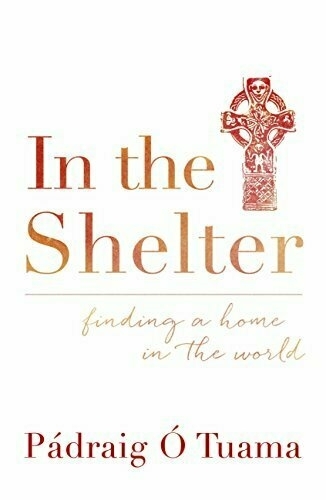
2019 Reading, Compendium #4
Goodness, I’ve let this go a while without providing a list. Here we go…
Anointed with Oil: How Christianity and Crude Made Modern America by Darren Dochuk
A fascinating look at how the oil industry worked hand in hand with evangelical Christianity to shape America in the 20th century. Read Heath W. Carter’s 5-star review over at Christianity Today.
The Rule of Law by John Lescroart
Meh. This series has gone on far too long at this point.
My Antonia by Willa Cather
Easily my favorite of Cather’s Prairie Trilogy.
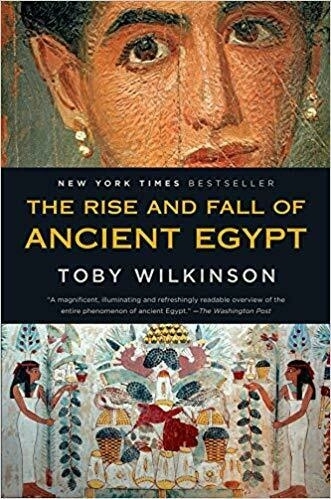
The Rise and Fall of Ancient Egypt: The History of a Civilization from 3000 BC to Cleopatra by Toby Wilkinson
The book wasn’t quite as long as the empire. Still trying to get my head around a legitimate empire that spanned millennia. Astounding.
Palace Walk by Naguib Mahfouz
I remember almost nothing about this book.
On The Neurobiology of Sin by Lazar Puhalo
A short treatise by an Orthodox bishop addressing, among other things, homosexuality and transgenderism. Reads like an undergraduate-level paper on genetics combined with a couple weak blog posts on theology. I was disappointed.
The Inner Kingdom by Kallistos Ware
A collection of essays from an Eastern Orthodox bishop.
God Land: A Story of Faith, Loss, and Renewal in Middle America by Lyz Lenz
I have a complicated relationship with this book, but I think it has some good insights about the church in the Midwest.
Last Day by Domenica Ruta
An interesting concept for a novel that never really came together.
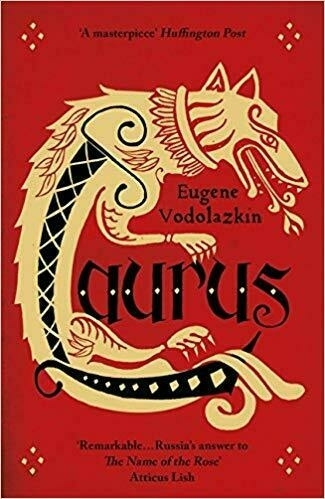
Laurus by Eugene Vodolazkin
Now this one was well worth reading. A beautiful novel about a medieval Russian “holy fool”. Rod Dreher has a nice piece about it if you want to read more.
Normal People by Sally Rooney
Maybe normal people are boring. Or at least this book was.
Reading Romans Backwards: A Gospel of Peace in the Midst of Empire by Scot McKnight
Start at the end of Romans, Dr. McKnight says, understand the context and audience, and then work your way back to get a better perspective on what the doctrinal passages mean. Interesting.
The Bird King by G. Willow Wilson
Picked up at random off the library shelf. A fantasy novel from a Middle Eastern Muslim perspective. Enjoyed it, though didn’t feel like the last third held up to the promise of the first two-thirds.
The Christian Imagination: Theology and the Origins of Race by Willie James Jennings
Oh man, this one was thick. A hard read but some good insight.
Alif the Unseen by G. Willow Wilson
The other book I read by Wilson the past couple months. Sort of a cyberpunk fantasy novel set in the Arab Spring in Egypt. Dug it.
The Orthodox Church: An Introduction to Eastern Christianity by Kallistos Ware
A historical and doctrinal primer by one of the esteemed bishops of the Orthodox Church.
Stokely: A Life by Peniel E. Joseph
A biography of Stokely Carmichael, the founder of the Black Panther Party. Knew nothing about him before reading the book. Quite a charismatic guy.
What Is a Girl Worth?: My Story of Breaking the Silence and Exposing the Truth about Larry Nassar and USA Gymnastics by Rachael Denhollander
I knew this woman was a hero for publicly coming forward with allegations of sexual abuse against Nasser. What I didn’t realize before reading the memoir was how integral she was in every part of building and executing the case against him. So much to love about this book and its heroes, Rachael and her faithful husband Jacob.
Dignity: Seeking Respect in Back Row America by Chris Arnade
This one really merits its own post. Arnade traveled the country exploring “back row America” and its people. Gripping personal narratives and photography.
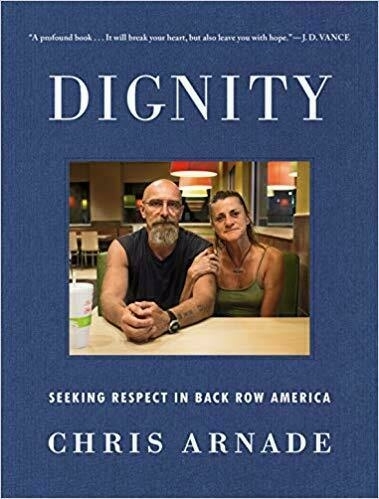
Bullet Points for a Monday Morning #6
Because it’s been a while…
- Lots of topics have rattled around in my head… none have congealed enough for a real post. Oh well.
- We did an Alaska vacation in July. It was amazing. It’s really kind of sad that I haven’t posted anything about it so far.
- It’s September, which means my summer cheering for the first-place Chicago Cubs has faded into a fall where the Cubs fade and likely just miss the playoffs. Fortunately football season has started. Now if only the Huskers could win a little more consistently…
- I listened to some old school Caedmon’s Call last week and was reminded why I loved that group. So tight.
- In the spirit of supporting local journalism, last week I subscribed to our local newspaper. My kids think it just means I’m old.
- My goal for book buying and reading was to keep the book pile shorter than my bedside table. Then I split the pile into two piles and now the goal is to keep each of them shorter than the bedside table. I really just need to find room for another bookshelf somewhere.
- Oh, and my kids are probably right - I am just getting old.
- Without mentioning titles, I can tell you off the top of my head that I have books in my to-read stack by Chris Arnade, David Bentley Hart, Fleming Rutledge, Bradley Jersak, Craig Allert, Justin Earley, and tomorrow will add one by Rachael Denhollander. And that doesn’t even acknowledge the pile-up of ebooks in my Kindle app.
Probability of my next post being anything than another Finished Reading Compendium? Pretty slim.
2019 Reading, Compendium #3
A few added to my list…
Good Omens: The Nice and Accurate Prophecies of Agnes Nutter, Witch by Terry Pratchett and Neil Gaiman
Somehow I’d not read this before, and with all the buzz on the Amazon TV series, figured it was worth giving it a try. I find Pratchett an acquired taste… one which I’m not totally on board with yet. Still, a fun read.
Paul and Gender: Reclaiming the Apostle’s Vision for Men and Women in Christ by Cynthia Long Westfall
Dr. Westfall brings her incredible expertise in Greek to bear on the Pauline texts about gender and gender roles within the church. Thorough and scholarly yet readable, she makes a strong case for an egalitarian position. Worth a read if you’re interested in this area of debate.
The Song of the Lark by Willa Cather
Continuing my read of Cather’s Great Plains Trilogy… a nice change of pace.
God in the Rainforest: A Tale of Martyrdom and Redemption in Amazonian Ecuador by Kathryn T. Long

Say the names Jim and Elisabeth Elliot to anybody who grew up in the evangelical church and you’ll almost certainly get quick recognition of the story of missionaries trying to reach a remote Ecuadorian tribe, and of the five men who were killed by that tribe after initiating contact. Elisabeth Elliot’s account of their efforts in Through Gates of Splendor became a bestseller the year after their deaths.
In God in the Rainforest, Dr. Long (Professor Emerita of History at Wheaton College) gives a historian’s critical eye to the long story of missionary contact and involvement with the Huaorani people in Ecuador. She manages to be incredibly evenhanded, avoiding the hagiography of Through Gates of Splendor and its follow-ups and examining the effects (both positive and negative) of the introduction of Western culture and Christianity to a previously unreached people group.
This one got particularly interesting for me because my wife’s parents served for decades with one of the missions organizations involved there and know those people, to the point that at least one of the people named in the book attended our wedding.
Separating missions work from our Western impulse to colonialize is an ongoing struggle. God in the Rainforest gives a fair view of how that struggle played out in the jungles of Ecuador in the second half of the 20th century.
How to Forget: A Daughter’s Memoir by Kate Mulgrew
I don’t remember who recommended this one. Turns out it was a short but not easy read. Mulgrew (probably best known as an actress for playing Captain Janeway on Star Trek: Voyager) didn’t have a very happy childhood or very good relationship with her parents. Mulgrew uses uses the story of her parents’ final years to frame her reflections on her childhood and younger life, and grapples with how to deal with the realities of her youth as she looks back.
2019 Reading, Compendium #2
Trying to not get my book lists get so backed up this time. Here’s what I’ve been reading recently:
Golden State by Ben H. Winters
This one underwhelmed me a bit - interesting concept of a society where everything is logged and speaking falsehood is against the law, but execution wasn’t so interesting.
Mission Critical by Mark Greaney
Sometimes you just need a spy thriller. But maybe not this spy thriller.
O Pioneers! by Willa Cather
I’ve never read Cather’s novels before, and felt some midwestern hankering for Nebraska-based writing. Now I need to get through the other two in the trilogy.
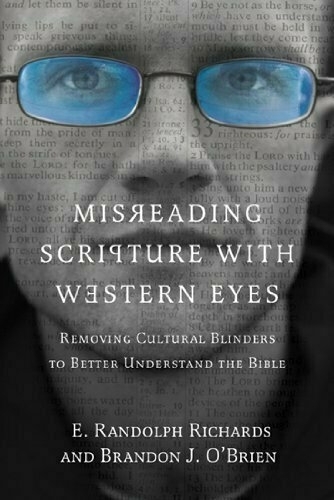
Misreading Scripture with Western Eyes: Removing Cultural Blinders to Better Understand the Bible by E. Randolph Richards and Brandon J. O’Brien
Richards and O’Brien are trying to help us understand that some of the texts that we so easily read and interpret through a 21st century American framework can have some significantly different meanings when seen through the cultural framework of the original audience. Worth a read, though not quite as earth-shattering as some of the reviews had led me to believe.
The Immortal Life of Henrietta Lacks by Rebecca Skloot
Henrietta Lacks was an African American woman whose cells were taken as a medical sample when she was in the hospital for cancer treatment. Those cells proved remarkably resilient and have become the base cell samples for medical experiments around the world to this day. Henrietta’s story itself is a rather slim part of the book; it revolves far more around race and poverty and its impact on the family she left behind.
Talent by Juliet Lapidos
This was a random selection from the library shelf that didn’t live up to its blurbs. Claimed to be a “deliciously funny” novel grappling with the source of creative inspiration and talent. Meh.
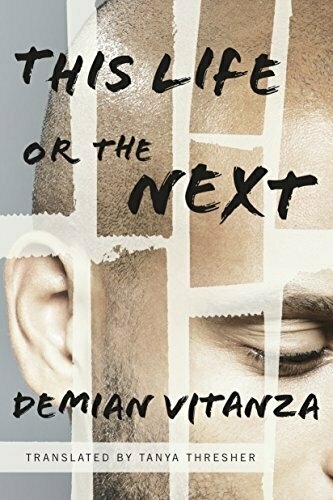
This Life or the Next by Demian Vitanza
A novel written as a first-person account of a Pakistani Muslim immigrant to Norway who went to fight with ISIS in Syria. Fiction, but based on accounts given to the author by a man currently serving time in a Norwegian prison for terrorism. Challenging to see an “enemy” through his own eyes.
A Song for Nagasaki: The Story of Takashi Nagai: Scientist, Convert, and Survivor of the Atomic Bomb by Paul Glynn
Biography, faith story, and harrowing account of surviving the Nagasaki atomic bombing all rolled into one. Really enjoyed this book. Planning to pass it along to my high school daughter to read.
The Radium Girls: The Dark Story of America’s Shining Women by Kate Moore
An account of an early workplace safety issue and court case where young women worked painting radium onto watches to make the faces luminescent. It’s an unsurprising story in most ways: a workplace hazard that, once understood by the corporation, was denied and covered up in order to maintain profits. The continual and vivid descriptions of the horrible effects of radium poisoning on these women’s bodies may have felt necessary to the author to raise the stakes of the story, but they were so vivid and plentiful that I just about put the book down because I could take any more talk of rotting jawbones and gushing pus.
And just so the last words in my blog post aren’t “gushing pus”, let me note that I’m still working on Rebecca West’s Black Lamb and Grey Falcon. It’s just gonna take me a while.
Finished reading, an early 2019 compendium
Maybe I’ll start posting these every time again… but for now I’ve got a long-ish list of books I’ve finished already this year. Particular standouts are in bold. Here goes nothin':
All That’s Good: Recovering the Lost Art of Discernment by Hannah Anderson
Fruit of the Drunken Tree by Ingrid Rojas Contreras
Empires of the Word: A Language History of the World by Nicholas Ostler
Virgil Wander by Leif Enger

The Color of Compromise: The Truth About the American Church’s Complicity in Racism by Jemar TisbyTisby carefully and methodically lays out the complicity and often encouragement that the American church gave to personal and institutional racism. A painful but needed reminder that we have a long way to go and a lot to make right.
The Killer Collective by Barry Eisler
Becoming the Gospel: Paul, Participation, and Mission by Michael J. Gorman
Christianity: The First Three Thousand Years by Diarmaid MacCulloch
The Feral Detective by Jonathan Lethem
We Need Each Other: Responding to God’s Call to Live Together by Jean VanierVanier is a Catholic humanitarian who founded a federation of communities dedicated to caring for people with developmental disabilities. I’ve heard and watched a couple interviews with Vanier and his holiness and humility are immediately evident in a way that’s incredibly rare. (His On Being interview with Krista Tippett is a great one.)His book is similarly humble and holy.
Radical Technologies: The Design of Everyday Life by Adam Greenfield
My Traitor’s Heart: A South African Exile Returns to Face His Country, His Tribe, and His Conscience by Rian MalanWritten prior to the end of apartheid in South Africa, Malan, a white South African journalist, tries to come to grips with the system of white supremacy that to him seems both wicked and unchangeable.
Rogue Lawyer by John Grisham
The Text of the Old Testament: An Introduction to the Biblical Hebraica by Ernst Wurthwein
Reconstructing the Gospel: Finding Freedom from Slaveholder Religion by Jonathan Wilson-Hartgrove
Benefit of the Doubt: Breaking the Idol of Certainty by Gregory A. BoydBoyd makes the case that doubt can enhance faith, and that at times the need for certainty can be more damaging than helpful. I’m right there with him on that one.
Paul: A Biography by N. T. Wright
A Prayer for Owen Meany by John Irving
Hyperion by Dan SimmonsAward-winning science fiction. Imaginative in a way that only the best sci-fi is.
Zoo Nebraska: The Dismantling of an American Dream by Carson Vaughan

Why Should the Devil Have All the Good Music?: Larry Norman and the Perils of Christian Rock by Gregory Alan ThornburyA well-written and -researched biography of one of the truly fascinating characters of early contemporary Christian music.
All You Can Ever Know: A Memoir by Nicole Chung
Flee, Be Silent, Pray: An Anxious Evangelical Finds Peace with God through Contemplative Prayer by Ed Cyzewski
Cyzewski makes the case for contemplative prayer being not just helpful but necessary, and makes it sound easy enough that even this long-time evangelical feels like I should take up the practice.
At the moment I’ve got another long one going: Rebecca West’s Black Lamb and Grey Falcon. (1200 pages!)
A passion for Jesus and for justice
Justice is inherent in justification.
This understanding of justification will have enormous effects on the church’s understanding of mission. Like Paul, the church that lives by this account of justification will not merely be trying to “save souls” but will want to be God’s agent in the creation of a justified and just people - transformed and participating in Christ and his current work in and through the church.
Evangelism - sharing the good news - will be a message about liberation from all sorts of sin, including hatred and violence and injustice, and into a new life. Centrifugal activity, or outreach - embodying the good news in the public square - will mean siding with those who are neglected and mistreated, whether in the neighborhood or in another part of the world. In fact, the differences between terms like “evangelism” and “outreach” will in part collapse, not because Jesus is being replaced with justice, understood in some generic, secular way, but because Jesus is justice, the justice of God incarnate. The result will be a deeper spirituality, not a lesser one, a closer walk with God (the God of justice), not a more distant one. In fact, the result will be a passion for Jesus and for justice.
-- Michael J. Gorman, from Becoming the Gospel: Paul, Participation, and Mission
My 2018 Reading in Review
Time for a quick recap of my 2018 reading. I’ve done several reading posts through the year so this can just be a summary.
Thanks to Goodreads I can report I read 71 books in 2018. 33 of those were fiction, the remaining 38 were mostly history and theology, with a few biographies thrown in. Though I have a large virtual stack of unread books in my Kindle app, most of my reading this year was still dead tree books. (Maybe this year I can start plowing through the electronic ones…)
A few notable favorites for the year:
Her Gates Will Never Be Shut: Hell, Hope, and the New Jerusalem by Bradley Jersak
Meeting Brad Jersak and hearing him teach this past summer at the Water to Wine Gathering was a highlight of my year. In this book Brad sketches a truly hopeful view of final things, of an eternal city whose gates are always open and inviting. I need to go re-read this one.
The Cross and the Lynching Tree by James H. Cone
I’m sure I wasn’t ready to read this one when it was published back in 2011. But to pick it up in late 2018 and read Dr. Cone’s insightful parallels between the cross on which Jesus suffered and the trees on which so many black people were lynched throughout American history was a powerful thing. I was struct by how the Bible is adaptable and interpretable (a more palatable word to some might be “relevant”) to such diverse swaths of the human experience.
The Calculating Stars by Mary Robinette Kowal
This one is a sort of alt-history crossed with Hidden Figures written from a strongly feminist viewpoint. Loved it. Next to pass it on to my daughters.
They weren’t all awesome.
Generally if I start in and after 40-50 pages I’m significantly unimpressed, I just put the book back on the return-to-library pile and pick up another one. Life’s too short to stick it out through bad books. There were a few clunkers, though, that I did manage to get all the way through and wouldn’t recommend. Two that stick out are Street Freaks by Terry Brooks (sci-fi writer trying cyber-punk and abusing every cliche in the genre) and The Darkening Age: The Christian Destruction of the Classical World by Catherine Nixey, which I wrote about earlier.
On to 2019!
I started the year thinking that I needed to burn through my Kindle and purchased book backlog. Then a week later I went to the library and borrwed four more books. Maybe I have a problem… but I guess it’s a good sort of problem to have.